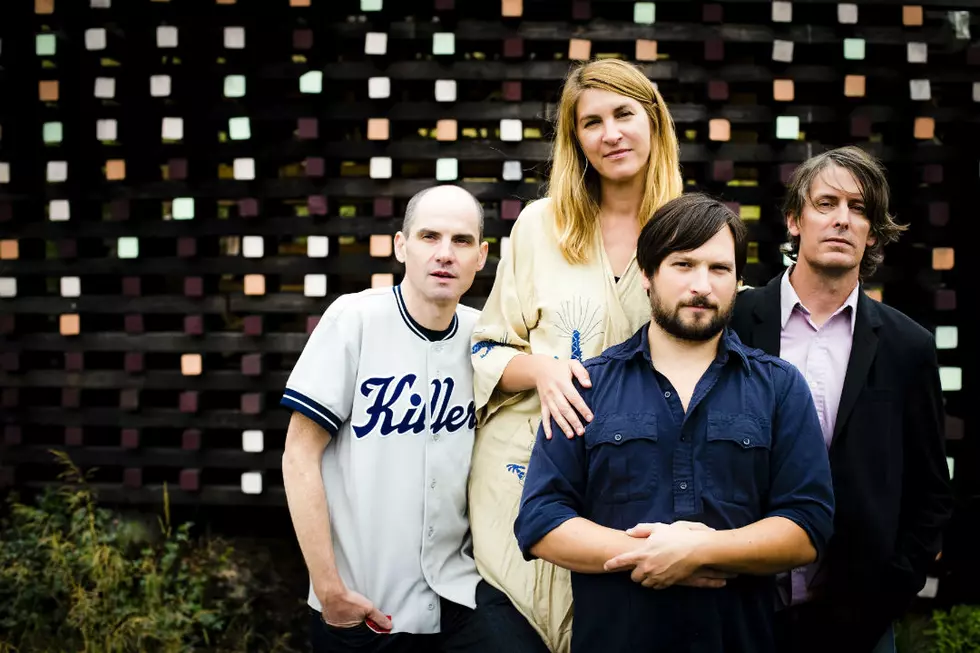
Pavement 101: The Enduring Legacy of the ’90s Indie-Rock Greats
On Aug. 11, Matador will release the first in a series of Pavement rarities compilations chronicling the band's decade-long career -- arguably one of the most influential to emerge in the ‘90s.
The first installment in The Secret History series documents the band’s earliest recordings circa their 1992 debut, Slanted and Enchanted. However, before that incredibly instrumental LP, the Stockton, Calif.-hailing band -- which originated as a project between frontman Stephen Malkmus and singer-guitarist Scott Kannberg in 1989 -- had already released a series of EPs that garnered buzz among critics.
The first of the three EPs, 1989’s Slay Tracks (1933-1969), was recorded at Louder Than You Think Studios, which was owned by Gary Young who provided drums on the disc and appeared in Pavement’s lineup until 1993. As an initial offering, Slay Tracks carried the band's apparent influences -- most notably the English post-punk outfit, the Fall. While the EP was passed around among the underground, it also maintained an element of mystery in part due to Malkmus and Kannberg choosing to be credited under the pseudonyms “S.M.” and “Spiral Stairs,” respectively.
Pavement followed suit with two more EPs: 1990’s Demolition Plot J-7 and 1991’s Perfect Sound Forever. After the latter, the band began touring and recruited bassist Mark Ibold and found a second drummer in Bob Nastanovich, who served as a backup for the often-unpredictable Young.
Slanted and Enchanted officially arrived in the spring of ’92, heralding Pavement’s combination of off-kilter, lo-fi indie rock and quirky, opaque lyrics largely spearheaded by Malkmus and Kannberg. At their concerts, however, Young was becoming increasingly erratic, performing drunken handstands and climbing on top of his drumkit. After appearing on the their 1992 Watery, Domestic EP, Young was asked to leave the band and was replaced by Steve West.
After the departure of Young, Pavement made a concerted effort to peel back what had become a kind of signature sloppiness for their 1994 sophomore effort, Crooked Rain, Crooked Rain. The newly honed focus made way for the album’s breakthrough single, “Cut Your Hair,” which broke the top 10 on the Modern Rock Tracks chart and picked up significant rotation on MTV and radio. Before the band started work on a follow-up, Malkmus and Nastanovich to time to work with the Silver Jews -- the outfit helmed by their friend David Berman -- on their 1994 debut, Starlite Walker.
Pavement returned in 1995 with Wowee Zowee, which was perceived as a return to the spontaneous and idiosyncratic sensibilities of their pre-Slanted and Enchanted efforts following the somewhat mainstream reception of their second album. However, with their 1997 follow-up, Brighten the Corners, the band once again eschewed the sounds of the album’s predecessor by leaning on Malkmus’ keen eye for melody. Their fourth album peaked at No. 70 on the Billboard 200.
For their fifth and final record, 1999’s Terror Twilight, Pavement enlisted Radiohead producer Nigel Godrich. However, the fact that Malkmus penned all of the album's songs on his own, coupled with increasing tensions between the bandmates during the recording sessions, seemed to foreshadow the end of Pavement. The band released one more EP later that year, Major Leagues, before breaking up for good in 2000 and going their separate ways.
Malkmus embarked on a solo career that kicked off with his 2001 self-titled debut with the Jicks. Kannberg and former Pavement drummer Gary Young joined forces again for their new project, the Preston School of Industry (the two had previously reunited for a pair of songs on the Major Leagues EP).
Pavement eventually reunited for a handful of shows in 2009, which led to a full-fledged tour in 2010. While many diehards continue to petition for another reunion, Malkmus and company have been fairly adamant that it likely won’t happen. However, The Secret History promises to maintain the demand for the indie-rock greats’ return to the fore.
More From Diffuser.fm









